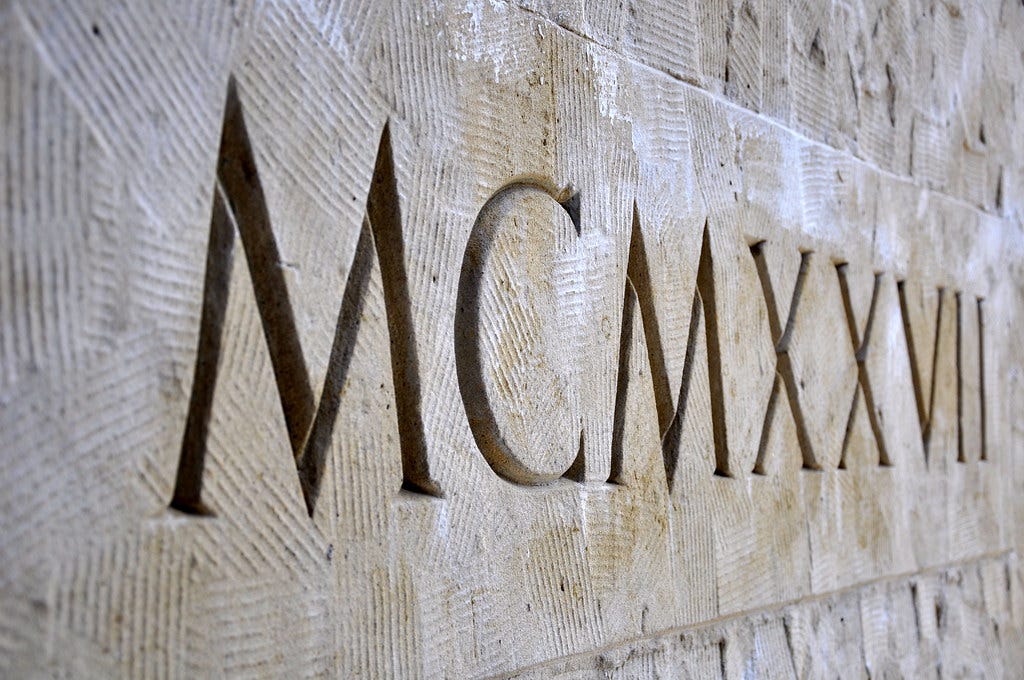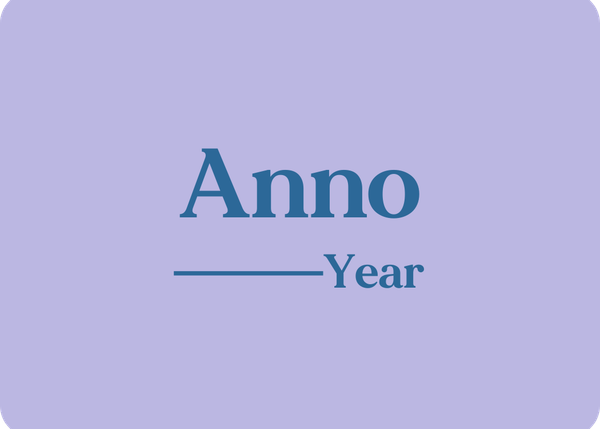Anno
NOUN [masculine]
Meaning and English translation 🔖
Year
🇬🇧 A year is traditionally understood as the time it takes for the Earth to orbit the Sun once.
🇮🇹 Un anno è tradizionalmente inteso come il tempo impiegato dalla Terra per compiere un’orbita completa attorno al Sole.
Depending on the context, you may combine anno with other words to create a new concept. Here are the most common:
- Anno bisestile → Leap year
- Anno sabbatico → Sabbatical year
- Anno accademico → Academic year
| Masculine ♂️ | Feminine ♀️ | |
|---|---|---|
| Singular | l' - un anno | - |
| Plural | gli - degli anni | - |
Example sentences 💬
L'anno scorso ho deciso di viaggiare di più.
Last year I decided to travel more.
Vent'anni fa lì era tutta campagna.
Twenty years ago, it was all in the countryside there.
Tra un anno farò il giro della Sardegna.
In a year's time, I will tour Sardinia.
I gemelli quanti anni hanno?
How old are the twins?
Gli anni passano velocemente.
Years go by quickly.
Ci vorranno degli anni per completare quel ponte, se mai si farà.
It will take years to complete that bridge, if it is ever done.
Note
In the following sentences, you’ll see the words “Annata” and “Annate”.
Annata/e refers specifically to a year considered in terms of the quality or characteristics of a particular product, usually agricultural, like wine, olive oil, or even a fashion collection.
So, while anno can be used more broadly for any context involving years, annata is specifically used when discussing years in relation to the quality or outcome of seasonal or annual productions.
Quest'annata di vino è eccezionale.
This year's wine is exceptional.
Le annate recenti sono state molto produttive per l'oliveto.
Recent vintages have been very productive for the olive grove.
This article is brought to you by Giulia School, where you can learn Italian the natural way—with real conversations and passionate teachers guiding you every step of the journey. It’s the closest thing to immersion you can get without living in Italy. Click here to learn more.
Idioms with anno 🇮🇹
Anno nuovo, vita nuova
→ New year, fresh start
Anno nuovo, vita nuova: a gennaio mi trasferisco all’estero.
New year, fresh start: I'm moving abroad in January.
Buon anno
→ Good year / Happy new year
Buon anno a tutti!
Happy New Year to everyone!
Anni di piombo
→ Years of Lead / Referring to a period of terrorism in Italy during the 1970s.
Quel film racconta una storia ambientata negli anni di piombo.
That movie tells a story set during the Years of Lead.
Anni verdi
→ Prime of life, youth
Nei suoi anni verdi, scriveva poesie e sognava di cambiare il mondo.
In his prime of life, he wrote poetry and dreamed of changing the world.
Where does the word anno come from? 🔎
Anno comes from the Latin "annus," which means year.
This Latin root has contributed to many time-related words across various languages. In Latin, annus is believed to be derived from an older Indo-European word, which is potentially linked to cyclic occurrences in nature.
The etymology of annus is connected to the Proto-Indo-European root "*at-no-", which is derived from the broader root "*at-", implying 'to go' or 'beyond'. This origin points to the concept of a cycle or a period that goes around and returns to the start, reflecting the cyclical nature of years.
Additionally, "annus" has influenced terms across many languages:
- English: "annual" and "anniversary" (through Old French);
- German: "Jahr" (an evolution from the same Indo-European roots but through different phonetic shifts);
- Spanish and Portuguese: "año" and "ano".
Did you know that... 🤓
Impress your italian friends with curious facts about Italy and its culture

Ever spotted Roman numerals on an ancient monument and wondered about their meaning? Let's decode the historic dates carved in stone!
Here's a quick guide to mastering Roman numerals like a pro:
- Basic Symbols: Know these crucial characters:
- I → 1
- V → 5
- X → 10
- L → 50
- C → 100
- D → 500
- M → 1000
- Adding Up
If a symbol follows a bigger or equal one, add its value!
Like VI = V + I = 5 + 1 = 6. - Clever Subtraction
If a smaller numeral precedes a larger one, it’s subtraction time.
IV = V - I = 5 - 1 = 4.






